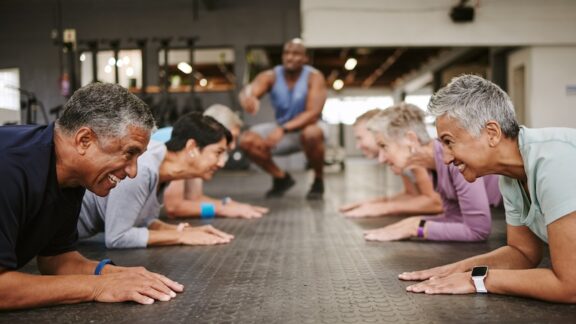Does it really make a difference if people – older adults in particular – spend more time involved in movement and less sitting? If so, how intense must the movement be?
Question: I keep hearing we should sit less. But what’s the evidence that less sitting makes a difference, and how should you go about doing it?
Answer: That’s an important question because whenever you make any type of lifestyle change, it’s helpful to know not just what you’re adding but also what you’re subtracting. For example, when people eat more fruit, they may eat fewer cookies, and both shifts are beneficial. Likewise, people are better off when they move more and sit less.
A study published in the European Heart Journal in November 2023 provided estimates about the potential advantages of choosing different activities — including sleeping — in place of sitting. The article included data from more than 15,000 people. Their average age was 54, nearly 55% were women, and most (88%) rated their health as good or better.
Researchers assessed the participants’ heart health based on their BMI (a measurement that incorporates both weight and height), waist circumference, cholesterol and triglyceride levels, and HbA1c (a measure of blood sugar used to assess diabetes risk). About a third were taking medication to control cholesterol, high blood pressure, or diabetes, and about 10% had been diagnosed with heart disease.
Participants wore special activity monitors that attach to the front of the thigh. These monitors are more accurate than those worn on the hip or the wrist for discerning between sitting and standing. Based on a week’s worth of data, the average participant’s day consisted of 7.7 hours sleeping, 10.4 hours sitting, 3.1 hours standing, 1.5 hours doing light physical activity, and 1.3 hours doing moderate-to-vigorous physical activity.

Not surprisingly, researchers found that moderate-to-vigorous activity proved most beneficial for heart health, while sitting was the worst. Next, they created statistical models to estimate what would happen if a person swapped one behavior for another. Replacing even just five minutes of sitting with moderate-to-vigorous activity (such as brisk walking, running, or cycling) could have a tangible effect on heart health, they reported.
While adding longer, more intense bouts of exercise can reap greater rewards, even small, modest changes can make a difference. For instance, replacing sitting with standing led to positive changes across all the health parameters.
While the researchers’ model suggests that even sleeping is better than sitting when it comes to heart health, it’s not quite that simple. For example, indirect factors that lead to weight gain (for example, snacking while watching television.) may explain why sitting appears worse than sleeping.
Your smartphone, a fitness band, or smart watch can help you keep tabs on your daily activity. Some models include default reminders to stand up at least once an hour for at least 12 hours per day.
A surprising and helpful movement habit: Fart Walks for Your Health
Howard LeWine, M.D. is an internist at Brigham and Women’s Hospital in Boston and assistant professor at Harvard Medical School. For additional consumer health information, please visit www.health.harvard.edu.
©2025 Harvard University. For terms of use, please see https://www.health.harvard.edu/terms-of-use. Distributed by Tribune Content Agency, LLC.
Continue reading helpful articles on Seniors Guide to improve your health:
More Efficient Walking Tips




